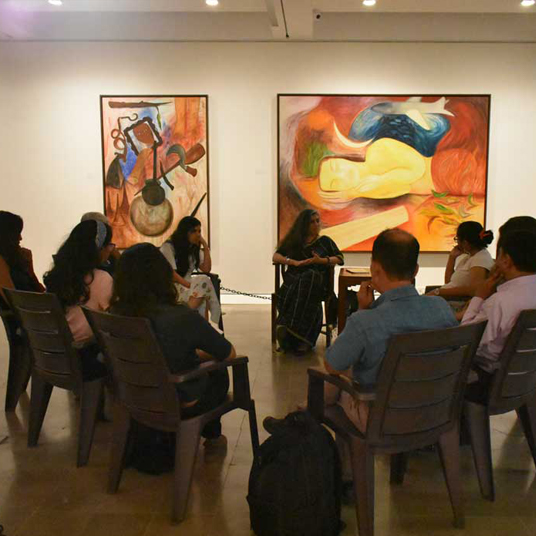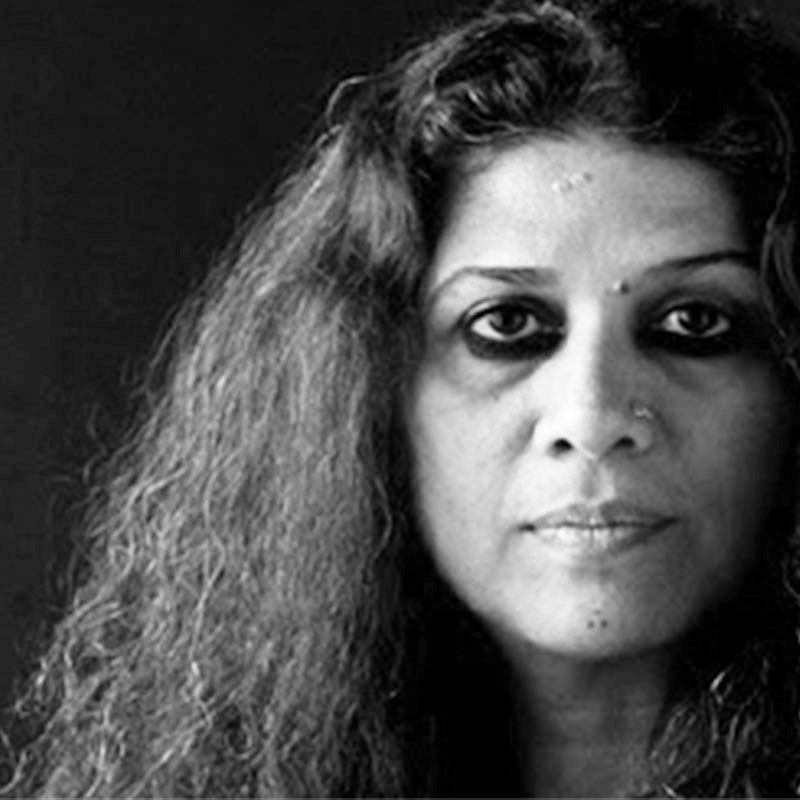
Connections in Temporary Spaces - Discoursing with the Other was a workshop devised as a conversation between the artist, Rekha Rodwittiya and those who write on art. It was meant to allow an exchange of ideas, thoughts, techniques and understanding between two groups of people who often share the same space but play different roles. Participants included journalists from Mid Day, Mumbai Mirror, The Indian Express, The Hindu, DNA, Loksatta, Lokprabha and Maharashtra Times amongst other publications.

Rekha Rodwittiya was born in Bangalore in 1958. She studied painting at the Faculty of Fine Arts, Baroda in 1981 and at the Royal College of Art, London where she completed her Masters in Fine Arts in 1984 with an Inlaks Scholarship.
Rekha Rodwittiya’s work describes complex issues of life and living, of alienation and belonging, of discrimination and acceptance, of accord and discord. It is of paramount importance to this sensitive artist to react pragmatically to socio-political attitudes that surround her. Her work reflects her sensitivity towards socio-political attitudes along with the reflections from her past. Her images are a byproduct of her thoughts and emotions, her readings, observations, beliefs, values and vast compilation of past experiences.
Her politically feminist practice of painting came about while studying at the Faculty of Fine Arts, Baroda. She found herself at odds with the male chauvinism of her contemporaries, which did not allow for any gendered redefinition of art practice. This was a confirmation for her to seek a way of painting that functioned with clearly articulated feminist political intentions. Thus the representation of the female figure has been a huge concern for her.
The artist draws on a heritage of elemental imagery, tempered by psychological insights, portraying women through the prism of personal experience and day-to-day realities. In the early 1980s, the female figures in her work were often tortured and broken, strewn about in a hostile space, sometimes that of the convoluted, claustrophobic interior. Through the late 1980s and into the early 1990s, her paintings often had the appearance of a shadow play populated by their human and animal protagonists in compositions that aggressively pitched figures out of the picture plane, almost demanding participation from the audience. A narrative subtext with concealed references almost always underlies these works.
In Rodwittiya’s later works, she represents large clothed Gauginesque women as the archetypal figure in their daily work rituals, dwarfing their tools and objects that surround them, in a celebration of the female protagonist.
She has exhibited her works nationally and internationally. She has been actively involved in teaching art through alternative non-institutionalised methods, as well as being a guest faculty at art colleges all over the world. She is the founder and CEO of The Collective Studio, Baroda. She writes on gender politics, issues of identity, cultural methods and other subjects of concern within an Indian and globalised context of art practice. She is an independant curator and currently maintains a blogspace.
She lives and works in Baroda.